Sixty years ago history was compressed into a single November weekend. It was the weekend that never seemed to end, that began with a TV bulletin and ended with a burning flame flickering on television screens across the nation.
Like a relentless Greek tragedy, the Kennedy assassination was a trauma played out over 75 straight hours on French Provincial wood consoles and sleek portable TV sets from coast to coast; its indelible impressions burned into our collective consciousness for half a century.
TV, that post-war miracle that promised to bring the family closer, made good on its promise that weekend.
TV, that post-war miracle that promised to bring the family closer, made good on its promise that weekend. There was no time that weekend to reflect, no time to collect oneself, no time for anything but to sit transfixed before the set and try to bring into reality this unthinkable thing.
The television landscape normally littered with canned laughter, persistent commercials, and goofy game shows had suddenly been silenced and stilled. In their place was an endless stream of tragic images.
It would be a series of sounds and pictures emanating from our TV sets that would always remain in the minds of those like an eight-year-old me who watched: the bloodstained suit, the widow’s mourning veil, the little boy saluting the casket, the tum tum tum-a-ta-tum of the muffled drums, the band playing “Hail to the Chief” in dirge time, the hollow clip-clop of the horse’s hooves, the spirited riderless horse Blackjack, and a little girl’s white-gloved hand gently touching a coffin.
Countered against all this was the jarring impact of the assassin’s own murder, so quick, so nightmarish, and so immediate because an already traumatized nation saw it happen on live TV.
It was our baptism into the TV generation.
Read More: A Tribute to the Kennedy Women: Power and Resilience
60th Anniversary of JFK’s Death: The Friday Shock
Watching endless TV became the weekends’ new norm, that began that Friday November 22.
Routinely, my mother would roll the portable Admiral TV set into the kitchen on Friday afternoons so that our cleaning lady would not miss her favorite soap opera as she did her chores.
Adjusting the antennae, Mom was grateful for this new lightweight TV set that miraculously eliminated any interference caused by appliances, cars or anytime a neighbor used his power drill.
With the set warmed up by 1:30 in time for As The World Turns, our cleaning lady settled into the Formica kitchen table to tackle the silver. Daubing the pink oily polish onto the ornate silver candy dishes and bowls, she rubbed vigorously, dissolving the black tarnish to magically reveal its true shiny and gleaming self.
Actress Helen Wagner had just said, “I gave it a great deal of thought Grandpa” when the show was interrupted.
Hooked on the soapy trials and tribulations of the show’s characters, her concern that day was whether or not her hero would remarry his divorced wife.
Actress Helen Wagner had just said, “I gave it a great deal of thought Grandpa” when the show was interrupted. Suddenly at 1:40, a Bulletin card flashed on the screen.
The disembodied voice of Walter Cronkite announcing: “In Dallas, Texas, 3 shots were fired at President Kennedy’s motorcade in downtown Dallas.”
When it was done CBS cut to a commercial for Nescafe, but when it returned the country would never be the same. The last entertainment or commercial that anyone would see for three and a half days had run its course. The silver would remain tarnished for another week.
The Sunday Somberness
November 24th, 1963 was no ordinary Sunday. But it was lunchtime and some things remained the same. As usual, Mom was at the stove preparing a bowl of Campbell’s Tomato soup for me. The perfect meal for a cold blustery November day, its hearty tomato-y fragrance filled the house…..mmm…mmm good.
And as usual, my brother was grousing about something—today’s complaint was the complete upheaval of television. Our Sunday favorite Let’s Have Fun was nowhere to be found on the TV.
The impact of grief over the death of our president was apparent. On Saturday streets were deserted, stores empty, theaters half-filled. Rain had fallen in New York and the bleak November sky accentuated the deafening of emptiness and loss. This was the mood of the country and my family.
The TV set was like a guest who came to dinner and never left.
Since Friday afternoon, networks and independent stations had completely canceled commercials and regularly scheduled programs. Continuous news reports about the assassination and related events were supplemented by special programs. All related to the death of our youthful, dazzling, president.
The Sunday had begun solemnly—plans for the President’s funeral was the agenda for the day.
The kitchen radio, normally turned on most Sunday mornings as Mom prepared breakfast, had now been displaced by the TV set, which was like a guest who came to dinner and never left.
Compared to Friday’s pandemonium and shock, Sunday was a quiet and subdued morning on TV filled with religious services. The usual assortment of Sunday morning cartoons was not an option.
The Sermon
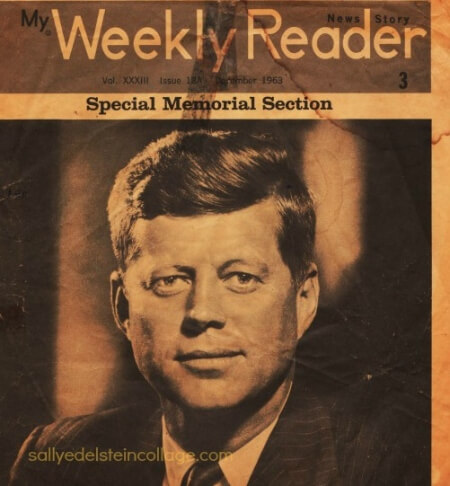
A Weekly Reader from 1963.
At 9 AM all three channels were broadcasting Richard Cardinal Cushing’s eulogy for the slain President, live from Boston. The sound of his nasal voice cracking with pain about his “dear friend Jack” filled the morning airwaves. The unfamiliar intonations of a Catholic Church Service would normally carry a sense of the forbidden, but for today it was oddly not out-of-place in my Jewish home. Americans all, we each mourned our President.
Mom lit a cigarette and flipped through the morning newspapers. The weekend papers usually chock full of pre-Xmas shopping ads were devoid of all advertising. Department Stores were closed till Tuesday; even the supermarket had limited hours despite Thanksgiving being right around the corner.
My football fanatic father was equally disappointed that the Giants game was blacked out.
The country had come to a grinding halt. A country used to moving forward with the New Frontier was at a standstill. Our new President Lyndon Johnson had declared Monday was to be a national day of mourning with offices, banks, schools, and colleges closed.
Though Monday would be a welcome day off from school, it was oddly unlike any other. Relieved to put off my Arithmetic test until Tuesday, the day had neither the feel of a sick day nor the fun of a snow day. Unlike a sick day, the balm of TV offered no distraction from our misery.
As disappointed as I was to miss Quick Draw McGraw and The Bullwinkle Show, my football fanatic father was equally disappointed that the Giants game was blacked out.
The sold-out football game between the New York Giants and the St Louis Cardinals at Yankee Stadium would still be played but the game would not be televised. Though WNEW radio promised to broadcast the game, Dad never got around to listening to it.
The most important event of the day would begin at noon when all networks would televise the funeral cortege from the White House. The First Lady was scheduled to follow the caisson bearing the flag-draped coffin down Pennsylvania Avenue to the Capitol Rotunda where the body of the President was to lie in state.
The Funeral
With the funeral procession about to begin on TV, I sat down for lunch.
Dad poured another cup of instant coffee and tackled the Times. With so much Kennedy coverage, he barely noticed that one of his favorite authors Aldous Huxley the author of Brave New World had also just died.
Not surprising, The New York Times lead story was about President Kennedy’s body lying in state at the White House. Sharing the front page, but under the fold, was an article with the headline: “Evidence Against Oswald Described as Conclusive,” written by Gladys Hill.
“Here’s one for you,” Dad said reading aloud from the newspaper. Mom looked up from the dishes with interest.
“Just like on TV,” I chimed in, “the sheriff has caught the bad guy!”
“Police officials said today they had amassed evidence enough to convict Lee Harvey Oswald of the assassination of President Kennedy,” Dad read.
Dad continued, as my ears perked up. “’We’re convinced beyond any doubt that he killed the President,’ said Captain Will Fritz, Chief of Dallas Police Homicide Bureau after questioning Oswald and others.”
“I think the case is cinched,” Dad read on. “District Attorney Henry Wade said he planned to present the case to the grand jury next Wednesday or the following Monday. He thought the case might come to trial in mid-January.”
Dad whistled: “That’ll be one heckuva trial! Imagine the press on that one!” Like most Americans, Dad felt relief that they had caught their man. In the great American tradition, justice would prevail.
I thought back to the picture they played over and over that past day and a half of the morose, puffy-eyed man wearing a T-shirt flanked by 2 beefy plains clothes officers as he entered the bedlam of the Dallas police station.
“Just like on TV,” I chimed in, “the sheriff had caught the bad guy!”
Another Shock
My attention turned back to the TV where a newscaster was reporting live from the Kennedy compound in Hyannis Port, concerning the condition of Joseph P. Kennedy, the late President’s father. Suddenly they switched from the overcast beach of Cape Cod to the now familiar, overcrowded corridor in the Dallas Police Department.
I watched with great curiosity as Lee Harvey Oswald appeared in handcuffs, the T-shirt covered by a sweater, with 2 plain-clothed cops at each side.
What happened next came with such breathtaking suddenness as to defy description.
A shot rang out and the news would never be the same.
The nightmarish TV sequence of Lee Harvey Oswald being shot was filled with panic and pandemonium and was over almost as soon as it started. A shot rang out and the news would never be the same.
Television for years had promised “a picture so real you’ll feel like you were there.” Finally it rang all too true.
Dad dropped the newspaper in disbelief.
Television was now more than the medium of choice it was the only medium anyone could envision capturing an event. When the weekend was over, print would never again challenge TV as the public’s primary source of information and authority.
A Brave New World indeed.
Read More: That Apollo 11 Night, 50 Years Later: Reflections on What We Found and Lost

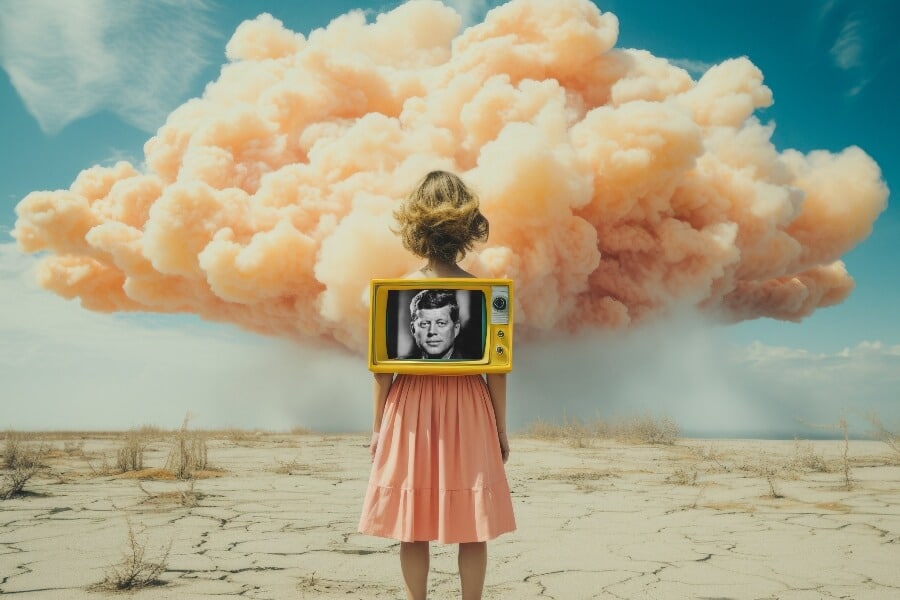
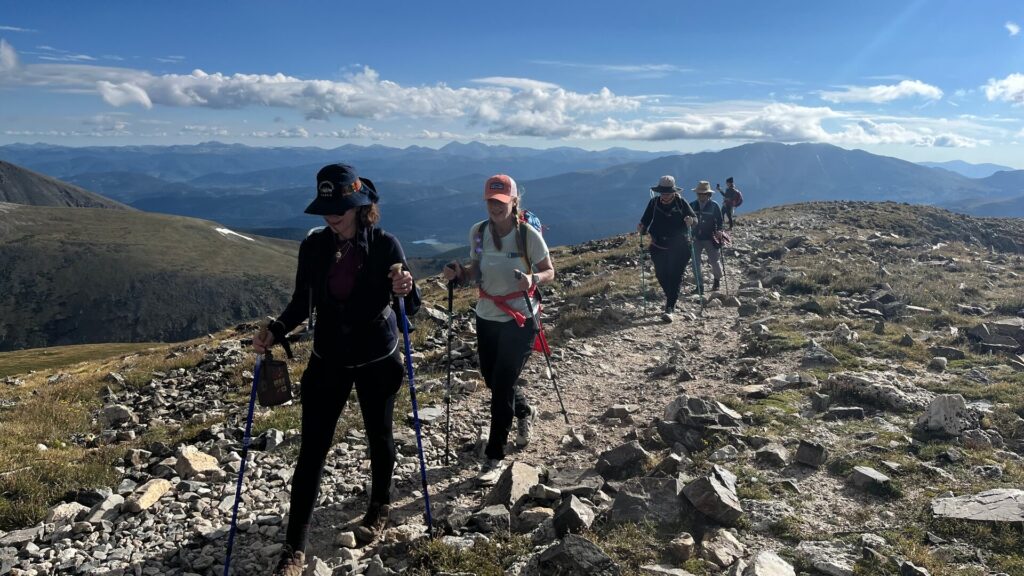



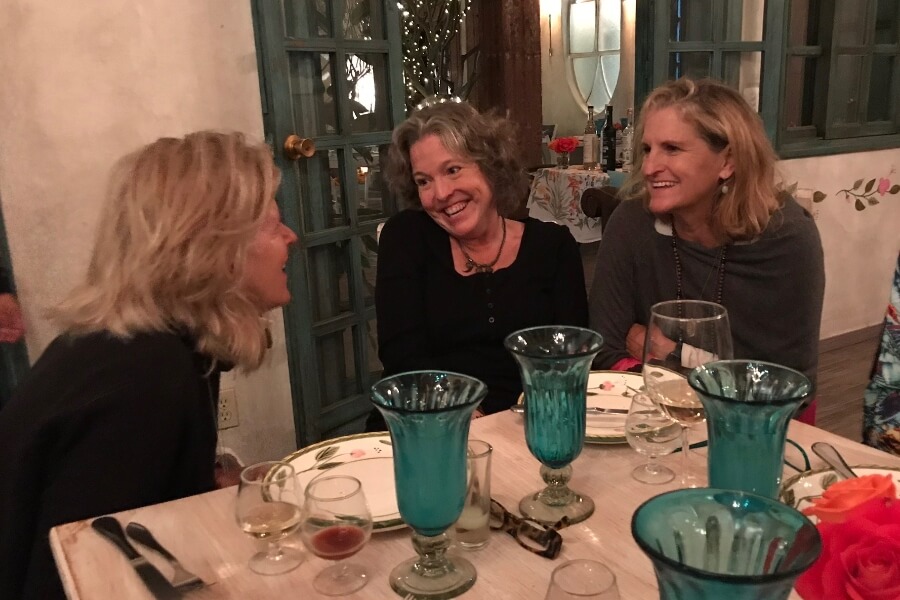

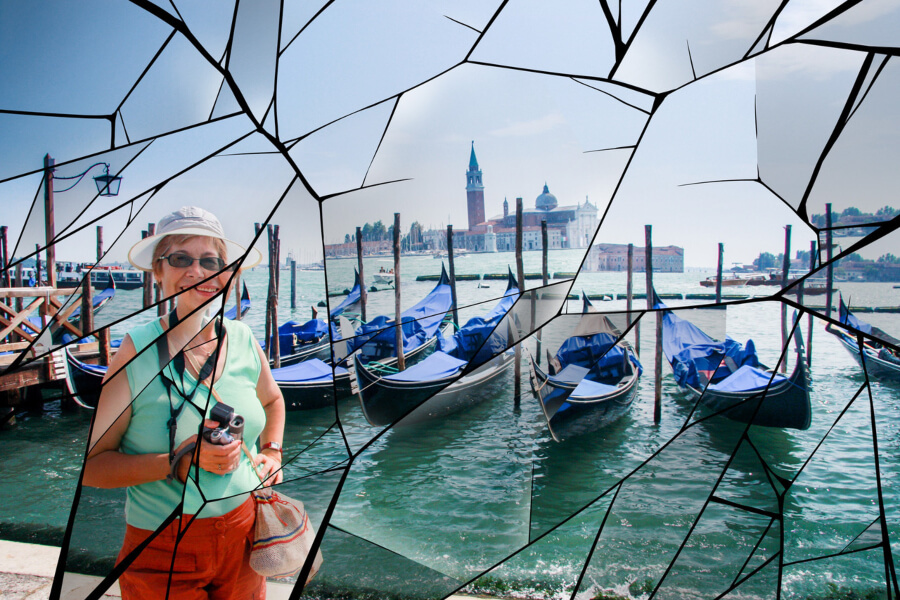
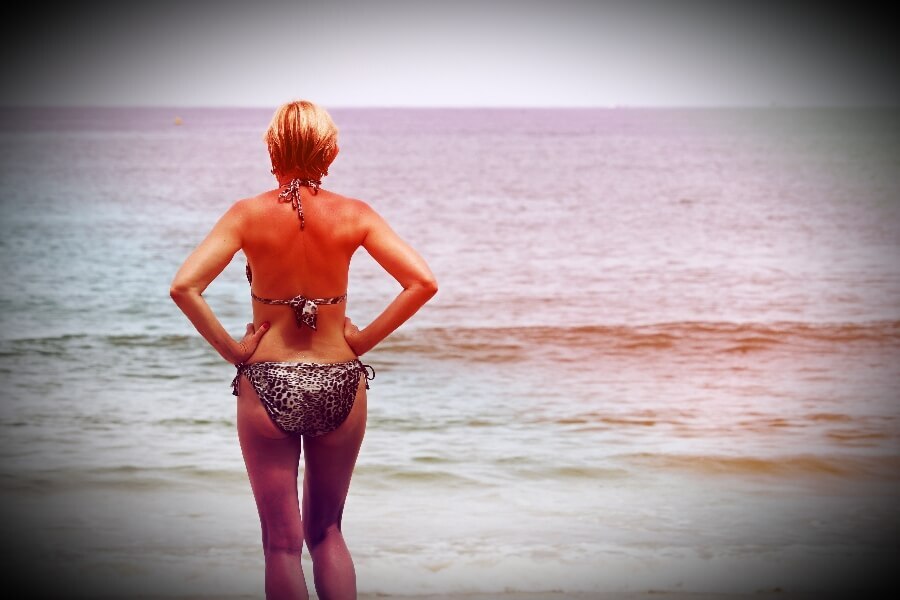
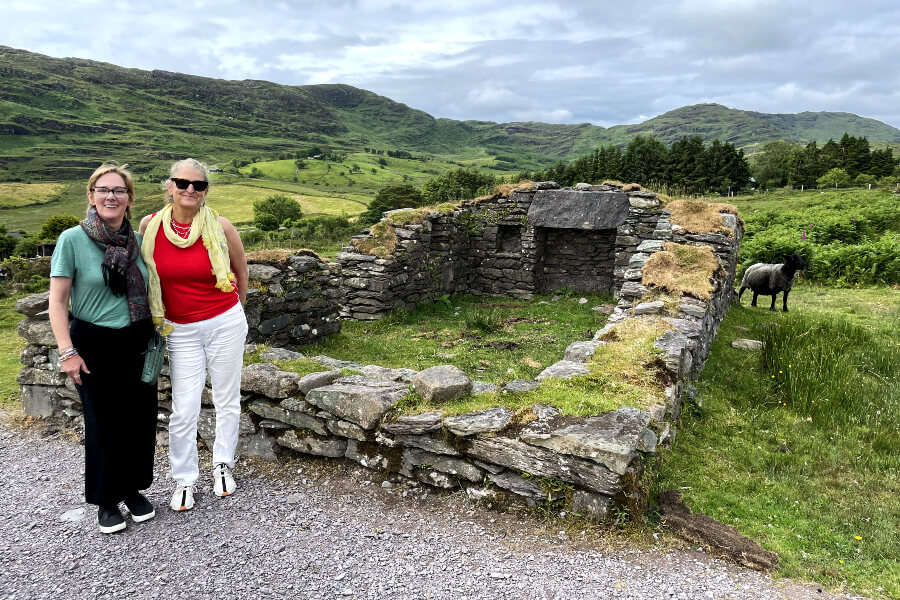
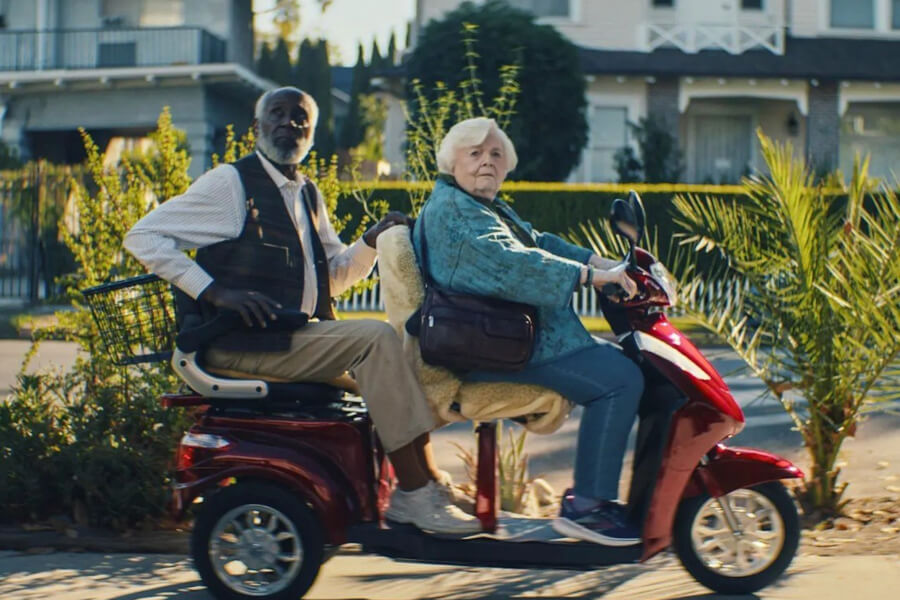

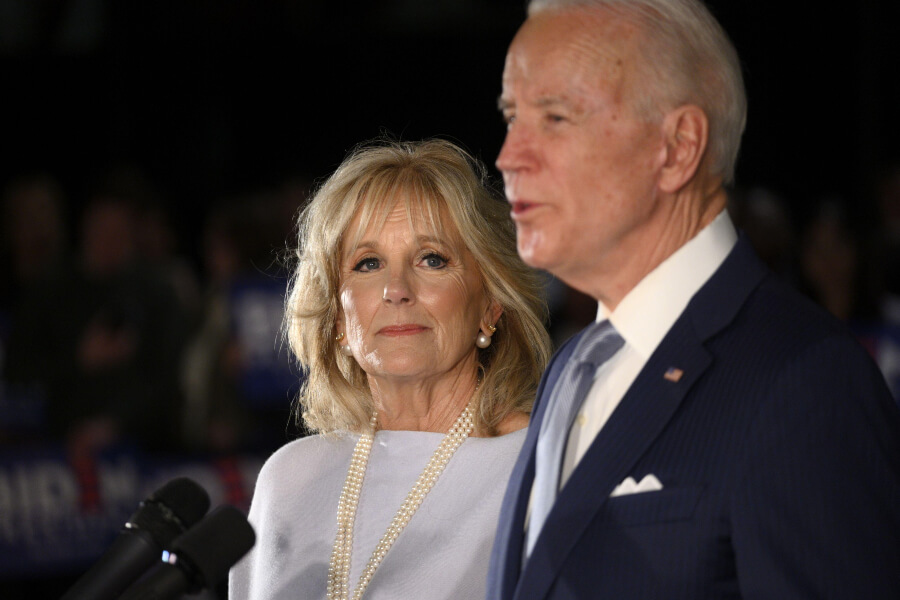







0 Comments